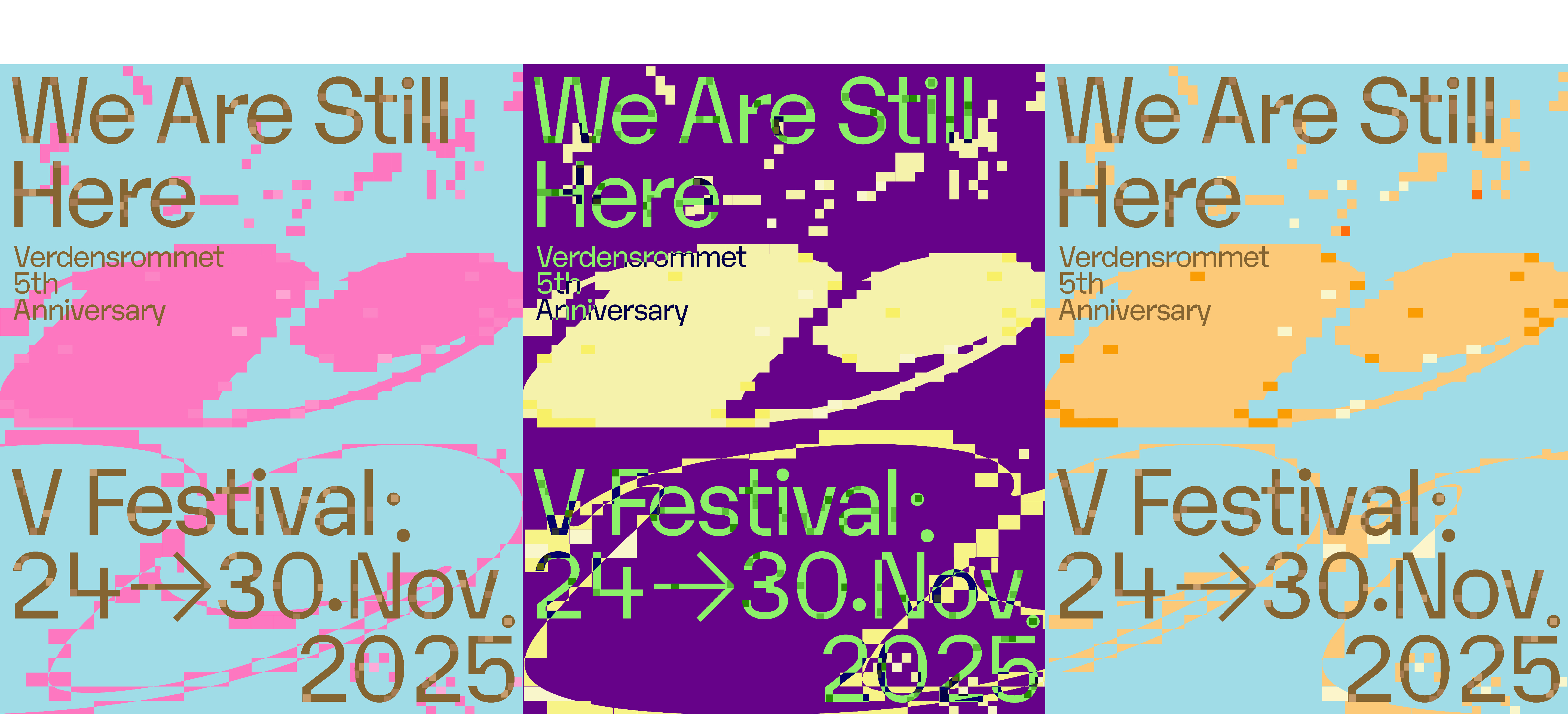.

Programme
Mutual support and artist-powered Infrastructures
*TALK* Mon 24. Nov (17:00-18.30)
@ Oslo Kunstforening (Rådhusgata 19, 0158 Oslo).
Working Table Series. Pilot -Art in Public Space and Public Commissions
*WORKSHOP* Tue 25. Nov (11:00-13:00)
@ UKS (Keysers gate 1, 0165 Oslo)
A selection of video-works from artists in Verdensrommet’s network
*SCREENING* Tue 25. Nov (19:00-20.30)
@ BO (Rådhusgata 19 0158 Oslo), @ Lydgalleriet (Strandgaten 195, 5004 Bergen), @ Kunsthall Trondheim (Kongens gate 2, 7011 Trondheim).
Mutual Support, Working Conditions, and Opportunities for Non-EU Cultural Workers in Stavanger
*TALK* Wed 26. Nov (17:00-18.30)
@ Rogaland Kunstsenter (Nytorget 17, 4013 Stavanger).
Cultivating Common Ground: Longevity, mobility and renewal in the Trondheim art scene
*TALK* Wed 26th (17:00-18.30)
@ Kunsthall Trondheim ( Kongens gate 2, 7011 Trondheim).
How can Tromsø create sustainable conditions—economic, social, and institutional—that encourage artists to remain in the region rather than migrate toward national centers
*TALK* Thu 27. Nov (17:00-18.30)
@ Tromsø Kunstforening ( Mellomvegen 82, 9007 Tromsø).
If all the bridges close: Art, education and institutions
*TALK* Fri 28. Nov (17.00-18.30)
@ Atelier Kunstnerforbundet Loft (Kjeld Stubs gate 3, 0160 Oslo).
We Are Still Here: Closing party
*TALK & PERFORMANCES* Sat 29. Nov (18.00-00:00)
@ UKS (Keysers gate 1, 0165 Oslo)
Satelite events
24.30 Nov, 2025
multiple venues
About
Celebrating its 5th anniversary, Verdensrommet launches V Festival: We Are Still Here –a week of public talks, screenings, a workshop, a party and other satellite events in partnering venues across Oslo, Bergen, Trondheim, Stavanger and Tromsø. The festival will take place from November 24-30, 2025. Free entrance.
V Festival: We Are Still Here aims to create a forum for criticality, mutual support and interdisciplinary collaboration, encouraging new ideas around the future for art practitioners in Norway, particularly non-EU artists.
Programme curated by Patricia Carolina, Ghazaal Nasiri, Sara Shooshtari, Mike McCormick, Tara Fraser, Eliot Moleba, Prerna Bishnoi and Itzel Esquivel
In collaboration and supported by Billedkunstnernes Vederlagsfond (BKV), Office for Contemporary Art Norway (OCA), Regionalt Kulturfond Trøndelag, Unge Kunstneres Samfund (UKS), Rogaland Kunstsenter and Atelier Kunstnerforbundet.
This would have been not possible with the support of our hosts Tromsø Kunstforening, Lydgalleriet, Billedkunstnerne i Oslo, Oslo Kunstforening and Kunsthall Trondheim.
Visual Identity Jacky Jaan-Yuan Kuo Web design Janine Zielman Social media and communication Jia Ji Hospitality Mathew Lacosse Production assistance Joanna Chia-yu Lin and Elena Perales Andreu
Thank you to the early members of the working group for their foundational contributions Robel Temesgen, Sampson Addae, Dua'a Al-Amad, and to all the friends and supporters of our network.
Verdensrommet is a mutual support network for non-EU creative professionals in Norway. It was created in 2020 to address the precarious conditions of visual artists whose citizenship led them to slip through the state’s support net. The low-income levels, highly bureaucratic regimes, unrealistic immigration policies, limited accessibility to social assistance, and the cultural deficit in public life accentuated by the Covid-19 pandemic have worsened the already precarious cultural workers’ economy.